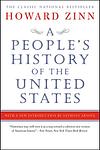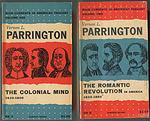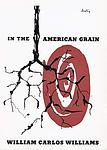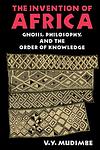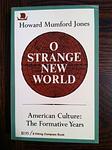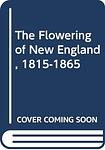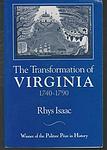The Greatest "History, Civilization" Books of All Time
Click to learn how this list is calculated.
This list represents a comprehensive and trusted collection of the greatest books. Developed through a specialized algorithm, it brings together 300 'best of' book lists to form a definitive guide to the world's most acclaimed books. For those interested in how these books are chosen, additional details can be found on the rankings page.
Genres
The category of "History" in books refers to the study and interpretation of past events, societies, and cultures. It encompasses a wide range of topics, including political, social, economic, and cultural developments, as well as the lives of individuals and groups who have shaped the course of history. History books can be written from various perspectives and may focus on specific time periods, regions, or themes. They aim to provide readers with a deeper understanding of the past and its impact on the present.
The category of "Civilization" in books encompasses works that explore the development, evolution, and impact of human societies and cultures throughout history. These books may cover topics such as politics, economics, religion, art, and technology, and may examine the rise and fall of civilizations, the interactions between different cultures, and the ways in which societies have shaped and been shaped by their environments. Overall, the category of "Civilization" offers a broad and fascinating perspective on the human experience and the complex forces that have shaped our world.
Countries
Date Range
Reading Statistics
Click the button below to see how many of these books you've read!
Download
If you're interested in downloading this list as a CSV file for use in a spreadsheet application, you can easily do so by clicking the button below. Please note that to ensure a manageable file size and faster download, the CSV will include details for only the first 500 books.
Download-
1. The Waning of the Middle Ages by Johan Huizinga
"The Waning of the Middle Ages" is a historical analysis of the cultural life of the late Middle Ages, particularly in France and the Low Countries, during the 14th and 15th centuries. It delves into the period's modes of thought, forms of expression, religious beliefs, and social norms. The book argues that the era was characterized by a highly stylized and overwrought civilization, marked by an excessive emphasis on chivalry and courtly love, a religious mindset dominated by the fear of death and the afterlife, and a cultural milieu that was both highly imaginative and deeply pessimistic.
-
2. A Study of History by Arnold J. Toynbee
"A Study of History" is an extensive 12-volume universal history, exploring the development and decay of world civilizations throughout the ages. The author proposes that civilizations rise and fall based on their responses to challenges, both physical and social. The book also puts forth the idea that religions play a crucial role in the rise of civilizations and that the failure of a civilization's creative power can lead to its decline. The work is renowned for its scholarly depth and its controversial theories about the cyclical nature of history.
-
3. Guns, Germs, and Steel by Jared Diamond
The book is a comprehensive exploration of the different trajectories of human societies throughout history. It argues that environmental factors, rather than racial or cultural differences, are the primary reason why some societies developed more advanced technology and political systems. The author uses a multidisciplinary approach, drawing from fields such as geography, evolutionary biology, and linguistics, to support his thesis. The book covers a wide range of topics, including the domestication of plants and animals, the invention of writing, and the spread of diseases.
-
4. A People's History of the United States by Howard Zinn
This book is a comprehensive overview of American history from the perspective of the marginalized and underrepresented groups, rather than the typical focus on political elites. It covers a wide range of historical events and periods, including the discovery of the continent, the founding of the United States, slavery, the Civil War, and up to the modern era. The book challenges traditional narratives and provides a critical and thought-provoking look at the nation's past.
-
5. Sapiens: A Brief History of Humankind by Yuval Noah Harari
This book provides a comprehensive exploration of the history of the human species, tracing back from the earliest forms of Homo Sapiens to the modern day. It delves into evolutionary biology, the development of cultures and societies, and the rise of major ideologies and technologies. The book also discusses the future of the species, posing thought-provoking questions about our roles and responsibilities in a rapidly changing world.
-
6. Main Currents in American Thought by Vernon L Parrington
"Main Currents in American Thought" is a comprehensive three-volume analysis of American literature and thought from the pre-colonial period to the early 20th century. The volumes explore the evolution of American philosophy, political ideology, and literature, highlighting the influence of various intellectual movements and their impact on the shaping of American society. The work emphasizes the role of liberal, democratic, and progressive ideas in the formation of American culture and identity.
-
7. The Mind of the South by W. J. Cash
"The Mind of the South" is a comprehensive exploration of the culture, socioeconomic conditions, and mindset of the American South. The author delves into the historical development of the South, analyzing the impact of slavery, the Civil War, and the subsequent reconstruction on the region's collective psyche. The book provides a critical examination of the South's perceived uniqueness, its racial dynamics, and the enduring influence of its past on contemporary Southern identity.
-
8. In the American Grain by William Carlos Williams
"In the American Grain" is a collection of essays that explores the history and culture of America through the lives of significant figures, such as Christopher Columbus, Abraham Lincoln, and Edgar Allan Poe. The author offers a unique perspective on these figures and events, challenging traditional narratives and interpretations. The book provides a deep analysis of American identity, emphasizing its complexity and diversity.
-
9. Antériorité Des Civilisations Nègres by Cheikh Anta Diop
"Antériorité Des Civilisations Nègres" by Cheikh Anta Diop explores the history and achievements of African civilizations, challenging the prevailing Eurocentric narrative that downplays the contributions of African cultures. Diop presents a compelling argument for the existence of advanced African civilizations and their impact on world history, drawing on linguistic, archaeological, and anthropological evidence. Through meticulous research, he highlights the intellectual, scientific, and cultural achievements of African societies, ultimately reclaiming their rightful place in the annals of human civilization.
-
10. The Invention Of Africa by V.Y. Mudimbe
"The Invention of Africa" explores the construction and representation of Africa as a continent and its people through the lens of Western knowledge and power. V.Y. Mudimbe critically examines the historical, cultural, and political processes that have shaped Africa's image, challenging the dominant narratives and highlighting the complexities and diversity of African identities. Through an interdisciplinary approach, Mudimbe deconstructs the Eurocentric gaze and invites readers to rethink their understanding of Africa and its place in the global context.
-
11. Collapse by Jared Diamond
"Collapse" is an exploration of why certain societies throughout history have thrived while others have deteriorated and collapsed. The book delves into environmental problems, climate change, rapid population growth, and unwise political decisions as factors that contribute to the downfall of a civilization. The author uses examples from history such as the Mayans, the Vikings in Greenland, and modern examples like Rwanda and Haiti, to illustrate his points. It serves as both a historical analysis and a warning for modern societies to learn from the past in order to avoid a similar fate.
-
12. The Clash of Civilizations by Samuel P. Huntington
The book presents a theory that people's cultural and religious identities will be the primary source of conflict in the post-Cold War world. The author argues that future wars will be fought not between countries, but between cultures, and that Islamic extremism will become the biggest threat to world peace. The book also explores the shifting balance of power at the global level and predicts a clash between the West and the Confucian-Islamic states.
-
13. O Strange New World by Howard Mumford Jones
"O Strange New World" is a historical account that explores the intellectual and cultural development of America from the time of the first settlers to the early 19th century. The author examines how the settlers' ideas of freedom, individualism, and progress were shaped by their experiences and the unique challenges they faced in the New World. The book provides a comprehensive understanding of the origins and evolution of American thought and values.
-
14. The Americans: The Democratic Experience by Daniel J. Boorstin
"The Americans: The Democratic Experience" delves into the social, political, and cultural evolution of America, focusing on the period from the end of the Civil War to the early 20th century. The book explores the impact of the democratic experience on various aspects of American life, including business, technology, and the arts. It also examines how the democratic experience shaped American identity and values, and influenced the country's growth and development.
-
15. The Flowering of New England by Van Wyck Brooks
"The Flowering of New England" is a historical narrative that explores the cultural and intellectual development of New England from 1815 to 1865. It delves into the lives and works of prominent figures of the period, their influences, relationships, and the social and political contexts that shaped their ideas. The book presents a rich tapestry of the literary and artistic scene of the era, capturing the essence of New England's intellectual flowering and its impact on American culture.
-
16. The Life of the Mind in America by Perry Miller
This book is a comprehensive exploration of the intellectual history of America, tracing the development of thought and philosophy from the Puritan era to the mid-twentieth century. It examines the evolution of American intellectual life, providing a detailed look at significant thinkers, their ideas, and the cultural context in which they emerged. The book also underscores the influence of European thought on American intellectualism, highlighting the tensions and synergies between the two.
-
17. The Growth of American Thought by Merle Curti
"The Growth of American Thought" is a comprehensive historical analysis of the development of intellectual and social ideologies in the United States, from colonial times to the mid-20th century. The book explores how various factors, including political, economic, and social changes, influenced the evolution of American thought and culture. It provides a detailed examination of the ideas that shaped the nation, the thinkers behind them, and the impact these ideas had on the country's growth and development.
-
18. The Transformation of Virginia, 1740-1790 by Rhys L. Isaac
"The Transformation of Virginia, 1740-1790" explores the social, cultural, and political changes in Virginia during the second half of the 18th century. The book provides a detailed account of how the state evolved from a British colony with a rigid social hierarchy and an economy based on tobacco farming and slavery, to a more democratic society with a more diversified economy. It also examines the impact of the American Revolution on Virginia, including the disestablishment of the Anglican Church, the end of primogeniture, and the gradual abolition of slavery.
Reading Statistics
Click the button below to see how many of these books you've read!
Download
If you're interested in downloading this list as a CSV file for use in a spreadsheet application, you can easily do so by clicking the button below. Please note that to ensure a manageable file size and faster download, the CSV will include details for only the first 500 books.
Download


